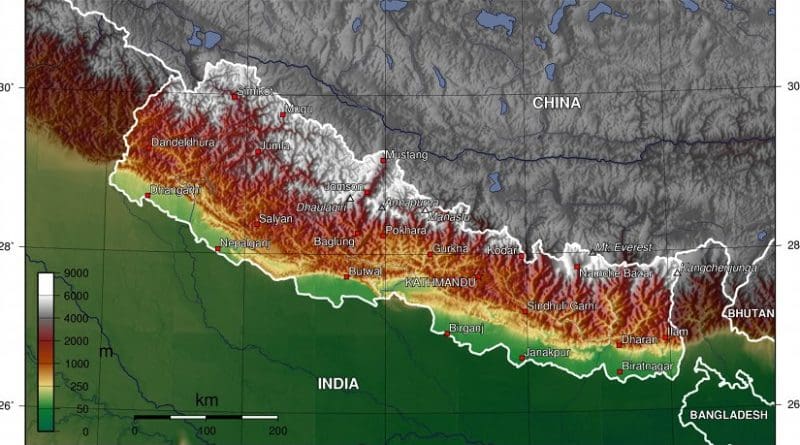Nepal: The Baidhya Faction And The Elusive Political Consensus – Analysis
By IPCS
By Pratima Koirala
The second constituent assembly elections are scheduled for 19 November 19 2013. However, due to the absence of a political consensus, the November elections remain elusive at present. The alliance of 33 political parties led by the Communist Party of Nepal (Maoist) are resistant and have announced a boycott and a retaliation movement aimed at foiling the polls.
Why does the political consensus remain elusive in Nepal? What significance does this consensus hold for changes in Nepal?
The Baidhya Faction
Mohan Baidhya Kiran, is the chairman of CPN-Maoist, a breakaway faction of the largest party of Nepal, UCPN-Maoist and the key opposition party at present. The government is urging Baidhya to come to the negotiation table to create an atmosphere conducive to holding the elections within the scheduled time. Is Baidhya evading the idea of an upoming election?
The alliance of 33 smaller parties led by CPN-M chairman Baidya have said that they are in favor of CA election but have set three preconditions for the party to contest in the Constituent Assembly (CA) election: first, the four major political parties scrap the 11-point and 25-point agreement which led to the formation of an interim election government; second, the dissolution of the current government under chief justice Khilraj Regmi; third the organization of a round table conference to form a government of national unity. They have been demanding the formation of a government led and participated by political parties.
Why is the Baidhya faction elusive? What do they want and for what reasons? Where do the other parties stand on this issue?
It’s All About Give and Take: What to Give and What to Take?
However, the major parties, Unified communist party of Nepal- Maoist (UCPN-M), Communist party of Nepal-Unified Marxist-Leninist (CPN-UML), Nepali Congress (NC) and Terai Madhes Democratic party (TMDP), have formed a high level political committee (HLPC). UCPN-Maoist chairman Pushpa Kamal Dahal who heads the HLPC has decided to reach out to the agitating political parties, preparing to hold decisive talks with the dissident political groups to convince them to join the election process.
The CPN-Maoist has insisted that the party will sit for talks with the High-level political committee if they agree to hold “unconditional talk” with the joint team of the 33 agitating parties. Meeting the demands of CPN-Maoist also will needs new ordinances and tearing down all the setups made so far is impossible task for the HLPC.
Most of the groundwork has been done for holding elections, so Chairman Baidhya might not be able to stop the Election Commission (EC) from holding the election. If Baidhya is serious about drafting people’s constitution, he must participate in the elections and be a part of mainstream politics. The politics of boycotting must be stopped because election is the only way to break any kind of political impasse.
The leaders of major political parties maintained that the demand for dissolution of the present election government and postponement of the November polls can’t be fulfilled and the election will be held at any cost even if the dissenting parties do not turn up for talks. The President of Nepali Congress, Sushil Koirala visited NPC-Maoist chairman Baidya to persuade him to participate in the elections but could not succeed. Leaders of Communist Party of Nepal-UML did not much worry about the CPN-Maoist not taking part in the elections. Some of the leaders have openly admitted that if CPN-Maoist non-participation in the election will not make any differences. Will the election be held on time in a credible environment?
Towards a Stable Future
Nepal’s political parties have, so far, failed to put forward any kind of vision and strategy and the rigid position of leaders make things more difficult in the current scenario. So the impunity and insecurity among parties continues. The political visions of leaders are not strategic and long term. They are full of mistrust and are self-centric. Therein lie their shortcomings.
Parties distracted by rivalries and division within themselves and the animus between them are certainly big drawbacks of Nepal’s political parties and the leaders. Reluctant attitude and slow movement shows the apathetic attitudes of political parties towards building any kind of consensus over the upcoming elections. Moreover, politicians dwelt on unnecessary issues, sidelining the major issue of building up long term strategic thinking on building consensus.
A second CA election is an unusual practice in the world, so all parties must embrace the change for sterring the nation into the era of stability, but the progress in this regard has been elusive till date.
Pratima Koirala
Research Intern, IReS, IPCS
E-mail: [email protected]

